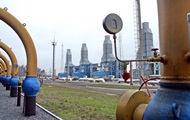Gas problems in the EU
–
–
Gas and electricity prices in Europe are breaking records; gas shortages even threaten with food shortages.
There are big problems with gas in Europe. The price is on the verge of a historic high, stocks are depleted. Since the beginning of the year, gas prices in Europe have more than tripled.
What will happen next?
Causes
There are several reasons for the rise in gas prices and gas shortages in Europe. Last winter in Europe was unusually cold, the heating was strong, and the gas reserves in the storage facilities were depleted. The heat came in summer – it spurred the demand for electricity (due to air conditioners), but dried up reservoirs and reduced the generation of hydroelectric power plants. Following the turbines, the wind turbines were dull – the summer in Europe turned out to be the most windless since the middle of the last century. All this spurred the demand for gas. But it is also lacking, and all over the world.
Europe’s own gas production is declining. In addition to depleting reserves in the North Sea, several Norwegian gas fields are undergoing scheduled maintenance.
Europe is switching to green energy, turning off nuclear and coal power plants. But renewable energy sources are an unstable resource, and gas is scarce.
Fill up with money
The Europeans read the unpleasant news about gas prices not in newspapers, but in utility bills. They went to complain to the authorities, but they have almost no opportunity to limit price increases in an extremely deregulated and competitive market. The authorities turned to the traditional recipe, tried after two crises of this century – to pour money on the fire.
France has promised to pay a lump sum of 100 euros to 5.8 million low-income families. Spain (to the dissatisfaction of the European Commission) promised to withdraw 2.6 billion euros of excess profits from energy companies in the next six months and distribute them in the form of subsidies to the population.
Italy started a reform of utility bills and wrote off up to 3 billion euros for temporary subsidies. Greece promised compensation of 9 euros per month to everyone, and even more to the poor, as well as preferential tariffs to the clients of the state-owned company. Portugal decided not to raise the ceiling of regulated electricity prices in 2022, despite the rising cost of raw materials for its production.
But the German authorities did not see the need to intervene in the situation.
Food shortage
The British experience demonstrates how a gas shortage can turn into a food crisis.
It all started with the fact that the American owners stopped both British fertilizer plants until spring. Expensive gas made their release unprofitable. Moreover, farmers were left without saltpeter and urea. It turned out that a by-product of their production is carbon dioxide, which is much more needed.
The shutdown of the factories deprived Britain of 60% of all carbon dioxide. The one that plays the role of a preservative in food packaging, fills lemonades and soda with bubbles, stuns livestock during slaughter and is used for cooling in everything from transportation to medicine and nuclear power plants.
The shortage of carbon dioxide proved to be such a serious problem for the food industry and farmers that the British government gave money to the American owners of two fertilizer plants to get them up and running. Christmas has not yet been canceled.
But only part of the problem has been resolved. Greenhouses and stables are still heated with gas and illuminated by more expensive light. Let food not disappear, but it will definitely rise in price, farmers and supermarkets warn.
– .


